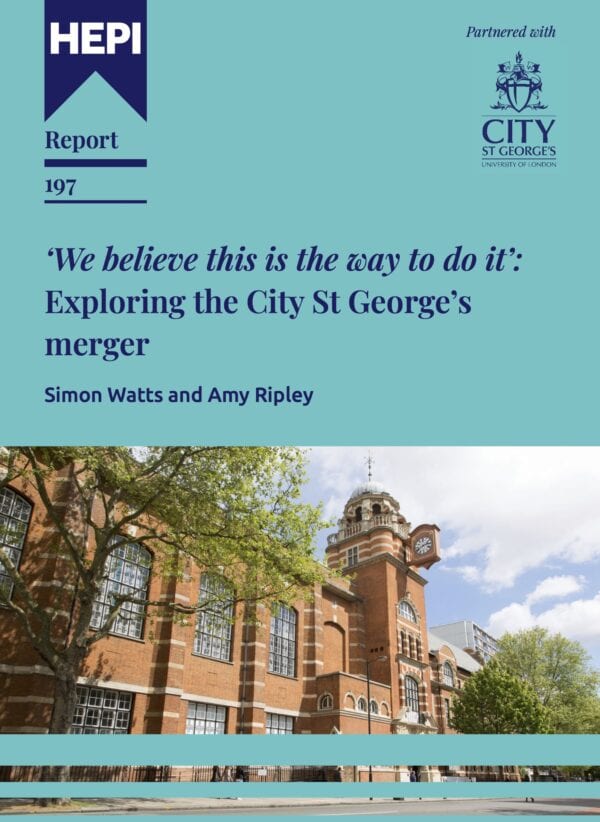Weekend reading: The Launch of the APPG on Students: Commission on Students in Higher Education
This blog was kindly authored by Alex Stanley, NUS Vice President of Higher Education, Saranya Thambirajah, NUS Vice President Equality & Liberation and Alex Sobel Member of Parliament for Leeds Central and Headingly.
Today, we’re proud to launch the Commission on Students in Higher Education, a project between the APPG on Students, supported by NUS UK and a group of expert Commissioners, and based on evidence, event attendance and input from over 50 students’ unions and sector organisations.
The Commission speaks to the themes of the Department for Education’s HE Review and Post-16 Strategy and places the voices of students right at the heart of key questions on inspiring high-quality teaching and learning, access and widening participation.
In the current financial climate for universities and for the Treasury, we would have loved to be able to produce a Commission which speaks to interventions in quality, that highlights the groundbreaking pedagogical practice that students’ unions and educational organisations were excited to share with us, and the amazing widening participation work that we have seen across the country.
However, across all of our work we had to return to the question of funding, for students and for the sector. Right now, we risk a situation where the state of funding for students and for universities creates a double crisis, where neither the student themselves have the money to thrive while studying, nor the university has the money to adequately support them.
We know that students are working longer and longer hours outside of their degrees, in jobs not directly relevant to their future careers. The HEPI and AdvanceHE Student Academic Experience Survey for 2025 shows that this is eating into their independent study time, with the average weekly study time dropping by two hours over the last year.
Our evidence shows a further impact of working hours: what is suffering is not necessarily academic outcomes, but students’ overall experience in higher education. Students’ unions reported to us that the uptake of student activities, clubs, societies, and extracurricular activities is decreasing, and when asked, students stated that they were spending the time they would have liked to spend on activities undertaking paid work instead.
This should raise significant concerns for anyone involved in higher education and student life. When a student enters university, they of course gain experience and qualifications from their academic study, but the skills and experiences gained from their additional activities are just as valuable for many students. In providing these activities, students’ unions are engines of social capital.
Those students who work the longest hours and come from middle and lower income families are seeing the sharpest end of the cost-of-living crisis are also those who stand to benefit from extracurricular activity. There are some widening participation initiatives actively working to rectify this, by providing mentoring and support to participate in additional activities. Evaluation of these programs, further explored in the Commission report, found that those who were enrolled in the programs were also more likely to take up leadership positions in their Students’ Unions, clubs and societies. This shows the need for financial support which supports not only academic, but social participation.
As part of the Commission, we received proposals on how a fairer settlement for student maintenance could be reached within the current financial envelope. The Commission considered proposals on funding maintenance through a system of stepped repayments to redress regressive distributional effects in the current student loan repayment system, to instituting a graduate levy on employers who benefit from recruiting graduates, both of which have been covered in the HEPi report How should undergraduate degrees be funded?
The cross-party consensus is clear: right now, it’s imperative that the government establish a new system of student maintenance that rises with the cost of living and ensures grant funding is available for the poorest students. We also believe that the government should have ambition toward meeting a Student Minimum Income, also fully explored here.
In the Post-16 Review, the Department for Education has the opportunity to publish a suite of bold, brave reforms to make life better for students. We will not be able to have the conversation about teaching, access and high-quality student experience without a foundational conversation about funding and student maintenance: we urge the Department to include a new settlement for student maintenance in the scope of the Post-16 Strategy.
You can read the full report from the Commission here.







Comments
Paul Wiltshire says:
The biggest problem facing students / graduates finances is that up 100’s of 1000’s of them are going to end up with a debt and have their finances blighted, but with no improved career pay prospects. We need to confront this and dramatically reduce %HE participation, rather than keep encouraging so many of our young adults to enter HE at great harm to themselves. It’s no use just tweaking what they repay as the tax payer shouldn’t be burdened with the extra loan write-offs and maintenance grant costs for so many students who simply didn’t need to get a degree in the first place. HE has become a gross exercise in Mass exploitation.
Reply
Add comment